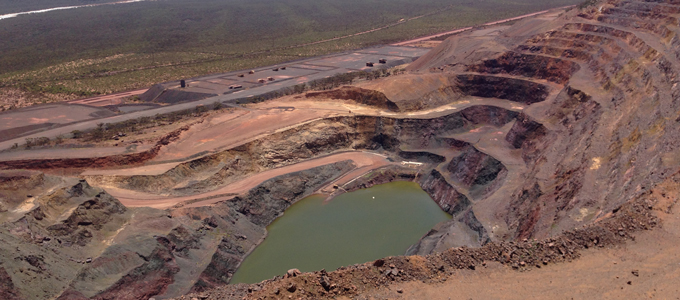Middleback pumped hydro concept study

Client: ZEN Energy, for Arrium Mining
Location: Middleback Ranges, South Australia
Date: November - December 2016
Exploring the concept of a pumped hydro energy storage project at a mine site, to support cost-effective, secure, and sustainable power supply.
Background
South Australia is embracing its abundant supply of sun and wind, rapidly developing large-scale solar and wind farms. To make these intermittent renewables ‘dispatchable’ and to provide the grid support services required for a secure, reliable and stable grid, more energy storage is required. Pumped hydro energy storage is a well-established, proven technology for large-scale and long-duration storage.
ZEN Energy engaged Entura to undertake a concept study for a proposed pumped hydro project at an iron ore mining site in the Middleback Ranges in South Australia, about 50 km from the town of Whyalla. The project would provide the storage required to complement the developer’s significant local solar developments. The combination would provide low-cost, reliable, low-emissions energy for the steelworks at Wyalla as well as serving other industrial and commercial loads.
Solution
Entura undertook a detailed concept study to identify a viable project layout and suitable installed capacity for the project, as the first step towards subsequent prefeasibility and feasibility studies.
The prime areas of focus for the concept study included site reconnaissance, risk identification and preliminary energy/cost estimation. As well, Entura undertook preliminary analysis of hydrology, geology, hydrogeology, topography, site access, potential layouts and grid connection.
The study identified that the Iron Duchess North Pit could potentially be used as the lower storage for the pumped hydro project, with an upper storage able to be constructed on top of an existing waste rock dump. The reservoirs would be connected by an underground water conveyance shaft, short power tunnel and tailrace tunnel. An underground powerhouse would contain two sets of reversible turbines, giving a capacity of 90 MW with energy storage of 390 MWh.
Entura’s studies identified potential risks requiring further detailed investigation in subsequent stages of the project. These include geological issues, water availability, impacts on groundwater, impacts of settlement of the rock dump, and grid connection. Entura also proposed a range of other potential options for layout, equipment and capacity, which could be considered in further options studies.


